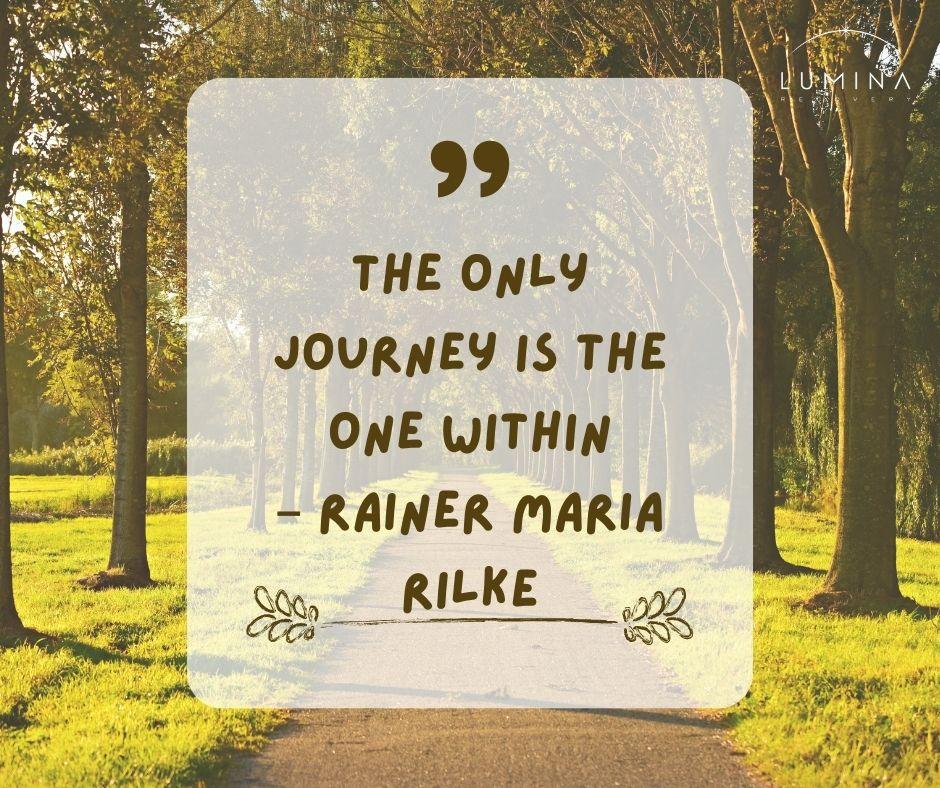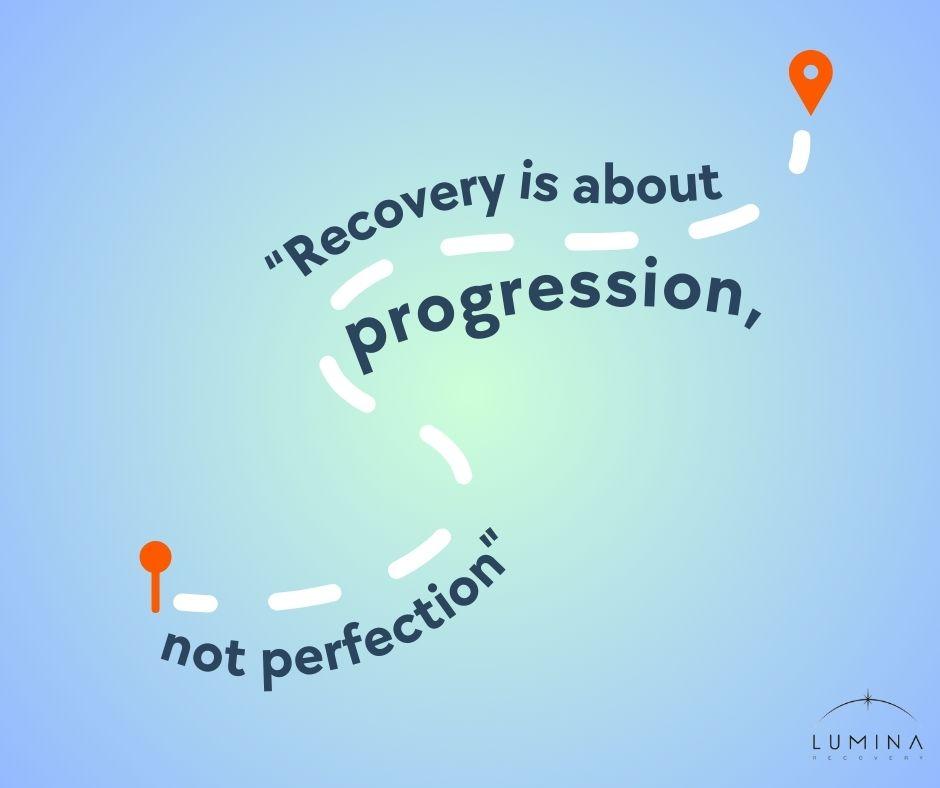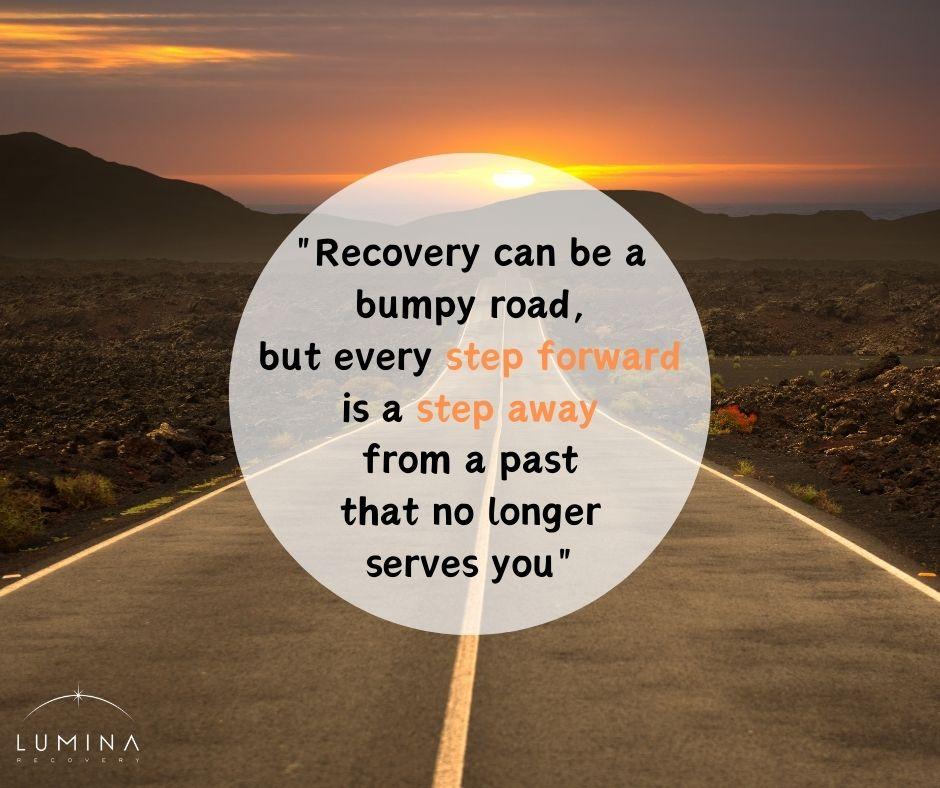
Our Addiction Resources
Navigating the world of addiction and recovery can be overwhelming. We’re here to provide clear, compassionate education and guidance. From practical advice for maintaining sobriety to informational guidance on the long-term effects of substance abuse, our content is a beacon of hope and understanding.
Our Team is Ready are ready to take your call
Call us Today!
or we can call you. Fill out form below
Our Blog

Healthy Internal Boundaries for Your Recovery Journey
Whether you are navigating the path to recovery from addiction yourself or are a concerned loved one, understanding the role of healthy internal boundaries is very important.
All are important, but these boundaries are the mental and emotional lines we draw around ourselves that help us recognize what is healthy and what is not, allowing us to make choices that support our well-being and recovery.
Why Is Creating Healthy Internal Boundaries Important?
Creating healthy internal boundaries during a recovery journey is crucial for a deeper understanding of their role in healing and personal growth. These boundaries are not just about setting limits with others but also about defining the self in relation to the world. They serve several critical functions in the recovery process:
Protects self-identity. During recovery, an individual’s mental health and sense of self can be fragile. Healthy internal boundaries help in defining who they are and who they are not, providing a stable foundation for their identity. This clarity is vital for individuals to understand their own needs, preferences, and values, separate from the influences of addiction or external pressures.
Enhances decision-making skills. Recovery requires making numerous decisions, from choosing to seek help, to determining daily actions that support sobriety. Setting internal boundaries improves decision-making skills by clarifying personal values and priorities. This enhanced decision-making supports recovery by enabling individuals to choose actions aligned with their long-term well-being.
Builds emotional resilience. The journey of recovery is emotionally challenging, filled with highs and lows. Internal boundaries help individuals recognize and manage their emotional states without becoming overwhelmed. By understanding and respecting their emotional limits, individuals can navigate stressful or triggering situations more effectively, reducing the risk of relapse.
Creates a safe space for healing. Addiction recovery is a process of healing, and like all healing, it requires a safe space. Internal boundaries contribute to creating this safe space within oneself. They allow individuals to define what is acceptable and what is not, who they allow close and who they keep at a distance, thus protecting their mental and emotional space from harm.
Encourages self-empowerment and autonomy. Establishing healthy boundaries is an act of self-empowerment. It signifies taking control over one’s life and making active choices about one’s interactions and reactions. This autonomy is critical in recovery, where reclaiming control from the substance or behavior is a fundamental goal. It reinforces the individual’s capability to manage their life and recovery process.
Facilitates healthy relationships. Recovery often involves reevaluating existing relationships and forming new ones. Healthy internal boundaries are key in developing relationships that are supportive and nurturing. By understanding and asserting one’s needs and limits, individuals can engage in relationships that respect these boundaries, contributing positively to their recovery journey.
Supports long-term wellness and sobriety. Ultimately, the goal of recovery is to achieve long-term wellness and maintain sobriety. Healthy internal boundaries are critical in this ongoing process. They help individuals consistently make choices that are in their best interest, avoid situations or behaviors that pose a risk to their sobriety, and engage in self-care practices that support their overall well-being.
10 Ways to Create Healthy Internal Boundaries
Creating healthy internal boundaries is a vital aspect of the recovery process, offering a framework for self-care, decision-making, and interpersonal relationships that support overall well-being. The journey to establishing these boundaries involves self-reflection, practice, and ongoing adjustment.
1. Deep Self-Reflection
The first step in creating healthy internal boundaries is to engage in deep self-reflection to understand your personal needs, limits, values, and the aspects of your life that require change or protection. This involves asking yourself what you value most, what you need to feel safe and respected, and what boundaries are necessary to protect your energy and well-being during recovery.
2. Define Your Limits Clearly
Once you have a good understanding of your needs and values, the next step is to define your limits clearly. This means knowing what you can tolerate and accept and what makes you feel uncomfortable or stressed. These limits should encompass physical, emotional, mental, and spiritual aspects of your life.
3. Develop Communication Skills
Effective communication is key to establishing and maintaining healthy boundaries. Learn to express your needs and limits clearly and assertively without being aggressive or passive. Use “I” statements to focus on your feelings and needs, such as “I feel overwhelmed when I don’t have time for myself each day. I need to ensure I have this time to maintain my well-being.”

4. Practice Saying No
One of the most powerful tools in boundary-setting is learning to say no. Saying no can be challenging, especially if you’re used to prioritizing others’ needs over your own. Practice saying no to requests or demands that cross your external boundaries or detract from your recovery efforts.
5. Strengthen Self-Awareness
Increasing self-awareness helps you recognize when your boundaries are being tested or crossed. Mindfulness practices, journaling, and therapy can enhance self-awareness, helping you to stay in tune with your feelings and needs and to recognize when it’s necessary to reinforce your boundaries.
6. Seek and Accept Support
While setting boundaries is a personal process, support from therapists, support groups, friends, and family can provide valuable feedback and reinforcement. These supports can also offer encouragement and understanding as you navigate the sometimes difficult process of asserting your needs.
7. Regularly Reassess Your Boundaries
As you progress in your recovery, your needs and circumstances may change. Regular reassessment of your boundaries is crucial. What worked at one stage of your recovery might not be suitable later on. Stay flexible and open to adjusting your boundaries as needed.
8. Implement Self-Care Practices
Self-care practices are an essential component of maintaining healthy boundaries. These practices help you recharge, reduce stress, and maintain your focus on recovery. They can range from basic needs like good sleep and nutrition to more personalized activities like meditation, exercise, or hobbies that bring you joy.
9. Educate Yourself and Others
Educating yourself about boundaries and the importance of them in recovery can strengthen your commitment to maintaining them. Likewise, educating those around you about your boundaries and why they are important can help them understand and respect your needs.
10. Be Patient and Compassionate With Yourself
Finally, remember that establishing and maintaining healthy internal boundaries is a process that requires time, practice, and sometimes, trial and error. Be patient and compassionate with yourself as you learn and grow. Celebrate your successes and view any setbacks as learning opportunities.
Set Healthy Internal Boundaries With Lumina Recovery
Creating healthy internal boundaries is a crucial aspect of the recovery journey. It enables individuals to protect their emotional well-being, make decisions that support their recovery, and navigate the challenges of recovery with resilience and self-awareness.
Lumina Recovery provides therapy services and dual diagnosis programs to help you or your loved one recover from addiction, setting internal boundaries in the process. By taking steps to understand and establish these boundaries, you or your loved one can move towards a healthier, more balanced life in recovery.
Take the first step towards a healthier future by reaching out for support on your recovery journey today.

How to Have Confidence in Your Sobriety
For many, the path to recovery is fraught with uncertainty, relapse fears, and the daunting task of rebuilding a life free from the chains of dependency. This is where the power of confidence in addiction recovery and one’s sobriety becomes essential.
Confidence in recovery doesn’t just shield against the risk of relapse, but it fosters a sense of self-assurance that can empower individuals to face life’s challenges head-on. Building self-confidence for long-term sobriety is crucial, and there are actionable steps one can take to cultivate and maintain this confidence.
Whether you’re embarking on this journey yourself or standing by a loved one, understanding the importance of confidence in sobriety and learning how to cultivate it can make all the difference.
Why It’s Important to Have Confidence in Your Sobriety
Confidence in sobriety plays a pivotal role in the journey toward recovery as a fundamental component that supports the entire structure of a person’s new life free from drugs or alcohol. This self-assuredness is crucial for several reasons.
It significantly boosts resilience against the temptations and triggers of relapse. When individuals have a firm belief in their ability to maintain sobriety, they are better equipped to navigate through challenging moments without giving in to old habits. This inner strength becomes a critical asset during moments of vulnerability and negative self-talk.
Having confidence in one’s sobriety directly correlates with an enhanced quality of life. It represents the reclaiming of control over one’s actions, decisions, and ultimately, their future. This newfound control allows individuals to actively pursue goals, romantic relationships, and hobbies that were once neglected or deemed unattainable due to the grips of addiction. As a result, life becomes fuller, leading to an overall improvement in well-being and mental health.
Furthermore, confidence in sobriety fosters healthier and more positive relationships. It enables individuals to engage more genuinely and openly with others, establishing trust and building stronger connections. This is particularly important as a supportive network is necessary for a sustained recovery.
Steps to Have Confidence in Your Sobriety
Building and maintaining this confidence can seem challenging, but with the right strategies, it becomes not only achievable but also empowering. Here’s how to foster confidence in your sobriety through various actionable steps:
Celebrate Every Milestone
Sobriety is a journey filled with significant achievements that deserve recognition. Celebrating these milestones, no matter how small they may seem, is crucial for building confidence and feeling good.
Whether it’s marking another day, week, or month of sobriety, or acknowledging personal achievements enabled by your recovery, each celebration reinforces your belief in your ability to succeed. These celebrations serve as reminders of your strength, resilience, and the progress you’ve made, fueling your confidence for the journey ahead.
Surround Yourself with Support
A supportive network is invaluable for anyone recovering from a substance use disorder. Surrounding yourself with people who believe in your ability to maintain sobriety can significantly boost your confidence.
This network may include family, friends, support groups, or professionals like therapists, all of whom provide encouragement, support, and a reminder of your strengths in moments of doubt. Knowing you’re not alone in your journey can make all the difference in maintaining a confident stance in your sobriety and improving self-esteem.
Engage in Positive Self-Talk
The way you talk to yourself can profoundly affect your confidence levels. Transforming your inner dialogue to be more supportive and forgiving helps build self-assurance. Use positive affirmations to remind yourself of your resilience, strength, and the progress you’ve made. This positive self-talk can rewire thought patterns, replacing doubts and fears with beliefs that reinforce your confidence in your ability to stay sober.
Maintain a Healthy Lifestyle
Physical health plays a significant role in mental and emotional well-being, which in turn affects confidence. Creating a routine by engaging in regular exercise, eating a balanced diet, practicing self-care, and getting enough sleep can enhance mental clarity and emotional stability. These improvements can bolster your confidence, making it easier to face challenges and remain committed to your sobriety.

Pursue Interests and Hobbies
Finding and engaging in new activities not only enriches your life but also reinforces your identity beyond addiction. Discovering hobbies and interests that you are passionate about can provide a sense of purpose and accomplishment.
This exploration and engagement in new pursuits can strengthen your confidence by demonstrating your ability to grow, learn, and create a fulfilling life without reliance on substances.
Seek Professional Help
There is strength in acknowledging when you need help and actively seeking it out. Professional support, whether through therapy, counseling, or recovery programs, can provide you with personalized strategies to overcome insecurities and challenges related to sobriety.
These resources can help build a solid foundation of confidence by addressing underlying issues and equipping you with the tools needed for sustained recovery.
Practice Mindfulness and Reflection
Mindfulness techniques such as meditation, journaling, or yoga can help you stay connected to the present and cultivate an attitude of gratitude and acceptance.
Reflecting on your journey, acknowledging the obstacles you’ve overcome, and recognizing your growth can greatly enhance your confidence and is a great coping mechanism. Mindfulness encourages a balanced perspective, enabling you to appreciate how far you’ve come and to remain focused on your path to recovery.
Gain Confidence in Your Sobriety With Lumina Recovery
Confidence in sobriety after addiction treatment is not merely a state of mind but a transformative force that propels individuals toward a fulfilling, substance-free life. It’s about believing in your capacity to overcome addiction, embracing your journey with all its ups and downs, and persisting with hope and determination.
At Lumina Recovery, we understand the complexities of this journey and stand ready to support you or your loved one in fostering the confidence needed for a successful recovery. We provide a range of treatment programs including specialized programs and dual diagnosis treatment.
Embrace your sobriety with confidence and contact Lumina Recovery today to learn more about how we can help.

How to Recover From an Anxiety Attack in Addiction Recovery
One of the hurdles many individuals face during the transformative period of recovery is dealing with generalized anxiety disorder (GAD) and anxiety attacks. These episodes can be overwhelming, making the path to recovery seem daunting.
However, understanding that you’re not alone and learning strategies to manage anxiety can empower you to navigate through these moments with strength and grace. Anxiety disorders and substance use disorders are more common than often recognized, and there are many practical steps one can take to regain calm and control during a panic attack.
Anxiety Attacks: A Common Companion in Recovery
As you step away from drugs or alcohol that once served as a coping mechanism, your body and mind go through significant adjustments. During this time, it’s not uncommon for individuals to experience heightened levels of anxiety in recovery from addiction, leading to anxiety attacks. These intense episodes of fear or panic are more than just a feeling of being stressed or worried—they can be all-consuming, impacting your ability to function normally.
The physiological and psychological changes that occur during recovery can trigger these anxiety attacks. Factors such as withdrawal symptoms, fear of relapse, changes in social relationships, and the stress of navigating a new way of living can all contribute to their onset.
Recognizing that anxiety can be a common part of the recovery process is crucial. It helps demystify the experience and encourages individuals to seek the support and strategies they need to cope effectively.
This serves as a reminder of just how intertwined mental health and addiction are. Dual diagnosis treatment is necessary to overcome addiction because the whole person needs to be healed to improve anxiety and addiction.
This holistic view paves the way for more effective and empathetic support frameworks, ensuring that individuals do not have to navigate the complexities of recovery and addiction treatment alone.
10 Strategies to Recover From an Anxiety Attack
When faced with an anxiety attack during recovery, it’s essential to have a toolkit of strategies to help you through these challenging moments. Here are some steps to consider:
1. Advanced Deep Breathing Techniques
Beyond basic deep breathing, engaging in more structured practices like the 4-7-8 technique can be particularly effective. Inhale for a count of four, hold your breath for seven counts, and exhale slowly for eight counts. This method helps regulate your body’s stress response and can quickly calm symptoms of anxiety during an attack.
2. Utilize Grounding Exercises
Expanding on grounding techniques, consider the 5-4-3-2-1 method. Identify five things you can see, four things you can touch, three things you can hear, two things you can smell, and one thing you can taste. This exercise effectively diverts your attention from anxiety to your immediate environment and the present moment, providing rapid relief.
3. Incorporate Mindfulness in Daily Activities
Mindfulness can extend beyond meditation to become part of your daily routine. Whether you’re eating, walking, or taking a shower, fully engage with the experience by paying attention to the sensations and details of the activity. This practice enhances your ability to stay present and reduce anxiety-provoking thoughts about the past or future.
4. Partake in Structured Physical Exercise
Regular physical activity should be a consistent part of your treatment for anxiety and mental health disorders. Find an exercise routine or physical activity you enjoy and make it a regular part of your schedule. This could range from yoga, which includes mindfulness elements, to more vigorous activities like running or cycling, which can significantly reduce stress levels.
5. Create a Support System
Building a network of support is crucial. This network can include peers from support groups who understand what you’re going through, friends and family members who offer a listening ear, and professionals like therapists or counselors at a treatment program. Knowing you have a robust support system can make facing anxiety less daunting.
6. Engage in Regular Therapy
Therapy can provide you with personalized strategies to manage anxiety. Cognitive behavioral therapy (CBT), in particular, is effective in identifying and challenging the thought patterns that contribute to anxiety attacks. Your therapist can also introduce other therapeutic approaches, such as exposure therapy, which gradually and safely exposes you to the sources of your anxiety, helping you build tolerance and reduce fear over time.

7. Consider Medication
In some cases, medication may be a necessary adjunct to therapy and self-help strategies, especially if the anxiety is severe. Doctors can prescribe medications like SSRIs (selective serotonin reuptake inhibitors) to help regulate mood and reduce the frequency of anxiety attacks.
However, it’s essential to discuss the use of medications thoroughly with a healthcare provider to consider the benefits and potential risks, especially for those in addiction recovery.
8. Try Journaling and Reflective Practices
Keeping a journal can be a therapeutic way to process your thoughts and feelings. Writing about your experiences, traumatic events, fears, and victories can offer insights into patterns that trigger anxiety and help you track your progress over time. Reflective practices also encourage a habit of self-compassion and acknowledgment of your growth and resilience.
9. Engage in Creative Expressions
Incorporating creative activities into your routine can serve as a powerful strategy for managing anxiety attacks during addiction recovery. Engaging in creative expressions such as painting, drawing, writing poetry, playing a musical instrument, or crafting can be incredibly therapeutic. These activities offer a constructive outlet for the complex emotions and stresses that accompany recovery, providing a sense of calm and accomplishment.
10. Develop a Personalized Anxiety Action Plan
Having a predetermined plan in place can help you feel more prepared to face anxiety attacks. This plan could include a list of grounding techniques that work for you, contact information for your support network, and reminders of past successes in overcoming anxiety. Having such a plan can make anxiety feel more manageable and less intimidating.
Find Help for Anxiety and Addiction With Lumina Recovery
Anxiety attacks can be a challenging obstacle when recovering from addiction, but with the right strategies and support, you can navigate through them and continue moving forward on your path to recovery.
Lumina Recovery is equipped to treat many forms of anxiety, including generalized anxiety disorder, social anxiety disorder, and obsessive-compulsive disorder, through our dual diagnosis programs, with inpatient and outpatient treatment options. Each day is a step towards healing, and facing anxiety is a sign of your strength and commitment to a healthier, substance-free life.
Contact our team of professionals today to learn more about how we can help you or a loved one.

The Importance of Patience in Recovery
Recovery is a long path marked not just by the challenges of abstaining from drugs or alcohol, but also by the need for personal growth and understanding. One of the most critical yet often underestimated aspects of this journey is patience in addiction recovery.
Whether you’re navigating your own recovery or supporting a loved one through theirs, patience is a light that guides progress. It’s the silent strength that helps overcome each obstacle, making the journey towards sobriety not just possible, but meaningful.
Why Is Patience Important?
Recovery, by its nature, is a process of transformation. It requires time, dedication, and a commitment to change. Patience in recovery is essential for several reasons:
Healthier Perspective on Time
In the fast-paced world we live in, instant gratification is often sought after in various aspects of life, including personal growth and healing. However, recovery from substance abuse defies this notion, as it requires an understanding and acceptance of the slow and steady nature of true progress.
Patience teaches individuals in recovery to recalibrate their perception of time, encouraging a focus on long-term healing and delayed gratification rather than immediate results. This shift in perspective is crucial for sustaining efforts over time and avoiding the pitfalls of discouragement.
Resilience Against Challenges
Patience equips individuals with the resilience they need to face challenges head-on in their recovery from addiction. Instead of succumbing to the temptation of a quick fix through relapse, patience encourages a steadfast commitment to recovery, even when progress seems slow or invisible. It’s the foundation of resilience that allows individuals to bounce back from setbacks and continue forging ahead.
Mindful Living and Self-Care
Patience in recovery also fosters a more mindful approach to life. Practicing mindfulness encourages individuals to slow down, live in the moment, and practice self-care. This mindful living is beneficial for mental health, as it reduces stress and anxiety, allowing individuals to focus on their recovery without the added pressure of haste.
Furthermore, patience helps cultivate a routine of self-care that supports physical and emotional well-being, which is vital for a sustainable recovery journey.
Stronger Relationships
Recovery often impacts not just the individual struggling with addiction but also their relationships with friends, family, and loved ones.
Patience plays a key role in mending and strengthening these relationships. It allows for the time and space necessary for healing wounds and rebuilding trust.
By practicing patience, both the individuals in recovery and their loved ones can work through the complexities of their relationships at a pace that accommodates everyone’s healing process.
Compassionate Self-Reflection
Patience is integral to the process of self-reflection and growth. It allows individuals to remain calm and have the space to reflect on their actions, understand the root causes of their addiction, and make meaningful changes.
This compassionate self-reflection is only possible when one is patient with oneself, recognizing that mistakes are part of the journey and that each step, no matter how small, is a step towards a better self.
8 Ways to Be More Patient in Recovery
Cultivating patience is a deliberate practice. Here are ways to foster patience while in recovery from addiction:
1. Develop a Growth Mindset
Embracing a growth mindset is pivotal in cultivating patience. Understand that recovery is a learning process filled with opportunities for personal development.
Viewing challenges as chances to grow rather than insurmountable obstacles can foster patience, as it shifts focus from immediate outcomes to long-term progress and learning.
2. Engage in Regular Physical Activity
Physical activity is a powerful tool for building patience. Exercise not only improves physical health but also reduces stress, anxiety, and depressive symptoms, which can trigger impatience.
Regular physical activity, whether it’s yoga, walking, or any form of exercise you enjoy, can help stabilize mood, enhance clarity of thought, and promote a more patient outlook on the recovery process.
3. Set Small, Achievable Goals
Setting realistic goals can significantly boost your patience. Small goals that turn into accomplishments remind you that progress is being made, even if it’s not always visible.
Celebrate these milestones to reinforce the value of patience and the incremental nature of recovery. This practice also helps in maintaining motivation toward the ultimate goal and a positive mindset throughout the recovery journey.
4. Practice Gratitude
Cultivating gratitude is a coping mechanism that can shift your focus from what you’re lacking to what you have. By acknowledging and appreciating the small victories and positive aspects of your life, you can foster a sense of contentment and patience. Writing in a gratitude journal or reflecting on a few things you’re grateful for can be a powerful practice in developing patience.
5. Learn Relaxation Techniques
Stress and anxiety can erode patience, making relaxation techniques vital tools for your recovery. Techniques such as deep breathing exercises, progressive muscle relaxation, or guided imagery can help individuals stay calm in the mind and body, fostering a state of patience and reducing the urge for immediate results.

6. Create a Supportive Environment
Surround yourself with people who understand and support your journey. This network can include family, friends, support groups, or a therapist.
A supportive environment can provide encouragement, advice, and a sense of belonging, all of which are crucial for cultivating patience. Knowing you’re not alone in your struggles can make the recovery process feel more bearable and meaningful.
7. Reflect on Past Successes
Reflecting on times when you successfully demonstrated patience can serve as a reminder of your ability to handle difficult situations. Whether in recovery or another area of life, recalling these instances can boost your confidence in your capacity to be patient and persevere.
8. Adjust Your Expectations
It’s important to recognize that recovery is not a linear process. There will be ups and downs, and adjusting your expectations to accommodate this reality can help foster patience.
By understanding that setbacks are not failures but part of the journey, you can maintain a patient and positive outlook through the fluctuations of recovery.
Embrace Patience During Recovery With Lumina Recovery
Patience in recovery is a powerful ally. It’s the quiet force that sustains hope, fuels perseverance, and transforms challenges into opportunities for growth. By embracing patience, those on the journey of recovery can navigate the path with resilience, embracing each moment as a step towards a brighter, healthier future.
In the pursuit of a healthier, sober life, Lumina Recovery offers a comprehensive approach to addiction treatment at our recovery centers that includes detox, medication-assisted therapy (MAT), and other vital support services, guiding individuals toward lasting recovery and well-being.
To learn more about our services, reach out to Lumina Recovery today.

10 Tips for Rebuilding Self-Esteem in Recovery
Recovery is not just about abstaining from drugs and alcohol—it’s equally about rebuilding the self and fostering a positive outlook on life. One important aspect of this is self-esteem.
It’s the foundation upon which individuals can begin to view themselves, their lives, and negative thoughts in a new, healthier light. People who suffer from low self-esteem and substance abuse as well as their loved ones should understand its importance in recovery and sober lives, and value the following tips as a guide.
Importance of Rebuilding Self-Esteem in Recovery
Addiction and low self-esteem go hand in hand as substance use disorders can erode an individual’s sense of self-worth, leading to a vicious cycle of negative self-perception and substance abuse or harmful behaviors as a coping mechanism. Therefore, individuals with low self-esteem should consider rebuilding self-esteem to be both transformative and healing. Here’s why it’s so crucial:
Providing a foundation for resilience. Rebuilding self-esteem empowers individuals to withstand the pressures and setbacks that invariably come with the recovery journey. With a stronger sense of self, people are less likely to succumb to the temptation of relapse when faced with challenges. Instead, they’re equipped with the inner strength to persevere and remain steadfast in their commitment to recovery.
Cultivating a positive self-image. The journey of recovery is also a journey of self-discovery. Rebuilding self-esteem enables individuals to foster a healthier and more compassionate relationship with themselves. This positive self-image is vital for breaking free from the shackles of addiction. It encourages a shift in perspective from seeing oneself as a victim to recognizing one’s agency and the capacity for change.
Enhancing emotional well-being. Low self-esteem is often accompanied by feelings of shame, guilt, and unworthiness, which pose significant emotional hurdles during addiction treatment. By focusing on rebuilding self-esteem, individuals can mitigate these negative emotions, paving the way for improved emotional well-being. This shift is crucial for healing, as it replaces self-criticism with self-acceptance and opens the heart to forgiveness.
Encouraging healthy relationships. Self-esteem influences the quality of relationships one forms. High self-esteem attracts positive and supportive relationships, which are instrumental in recovery treatment programs. It allows individuals to set healthy boundaries, communicate effectively, and engage in mutually respectful interactions. These relationships provide a network of support, love, and accountability, further bolstering the individual’s recovery efforts.
Promoting life satisfaction and purpose. Rebuilding self-esteem is key to finding fulfillment and purpose beyond addiction. It motivates people with low self-esteem to pursue goals, embrace new hobbies, and engage in activities that bring joy and satisfaction. This renewed sense of purpose can fill the void left by addiction, offering direction and meaning to life in recovery.
10 Tips for Rebuilding Self-Esteem in Recovery
1. Set Achievable Goals
Begin by setting small, realistic goals that you can achieve within a short period. This could be as simple as attending a support group meeting, going for a daily walk, or completing a personal project. Celebrate these achievements, no matter how small, to build a sense of accomplishment and progress. Setting and achieving goals demonstrates your capability and reliability, directly feeding into a more positive self-view.
2. Practice Self-Compassion
Treat yourself with kindness and understanding, recognizing that recovery is a process filled with ups and downs. Speak to yourself with the same compassion and empathy you would offer a close friend facing similar challenges. Acknowledge your feelings, allow yourself to experience them without judgment, and remind yourself that you’re doing your best under difficult circumstances.
3. Engage in Positive Self-Talk
Monitor your internal dialogue and challenge any negative or critical thoughts about yourself. Replace them with positive affirmations and statements that highlight your strengths and accomplishments. For example, instead of thinking, “I always mess up,” tell yourself, “I’m learning and growing every day.” Positive self-talk can shift your mindset and enhance your self-esteem over time.
4. Seek Support
Build a support network of friends, family, and peers who understand your journey and offer encouragement. Support groups, both in-person and online, can be invaluable resources for sharing experiences and receiving advice. Knowing you’re not alone in your struggles can significantly boost your self-esteem.
5. Discover New Hobbies
Explore new activities and hobbies that interest you. Whether it’s art, music, sports, or gardening, engaging in hobbies can bring joy and a sense of achievement. New hobbies can also help you meet people with similar interests, expanding your social network and support system.

6. Celebrate Achievements
Regularly acknowledge and celebrate every step of progress, no matter how small. Whether it’s maintaining sobriety for a day, a week, or a month, each achievement is significant. Celebrating these milestones can reinforce a positive self-image and motivate you to continue on your path to recovery.
7. Practice Self-Care
Make self-care a priority by maintaining healthy habits. Exercise regularly, eat nutritious foods, get enough sleep, and engage in stress-reducing activities like meditation or yoga. Taking care of your physical health can have a profound impact on your mental and emotional well-being, thereby improving your self-esteem.
8. Volunteer
Contributing to your community or helping others can provide a sense of purpose and fulfillment. Volunteer work can remind you of your value and the positive impact you can have on the lives of others, which is incredibly affirming and can significantly boost self-esteem.
9. Educate Yourself
Knowledge is power. Learn as much as you can about addiction, recovery, and mental health. Understanding the challenges you’re facing and the strategies for overcoming them can empower you and enhance your sense of control and self-worth.
10. Seek Professional Help
If you’re struggling to rebuild your self-esteem, consider seeking the guidance of a professional therapist or counselor. They can offer personalized strategies and support to help you navigate the complexities of recovery and build a healthier, more positive relationship with yourself.
Get the Help You Deserve With Lumina Recovery
Rebuilding self-esteem is a vital part of the recovery process, offering a foundation for a healthier and more fulfilling life post-addiction. By setting realistic goals, practicing self-compassion, and seeking support, individuals can gradually reconstruct their sense of self-worth.
Lumina Recovery offers evidence-based practices to support your healing including cognitive behavioral therapy (CBT) and dialectical behavior therapy (DBT). Recovery is a journey, and every step taken towards improving self-esteem is a step towards a brighter future.
To learn more about our programs and services, contact our team at Lumian Recovery today.

6 Communication Skills for Lasting Recovery
Imagine effective communication as a bridge, uniting us and fostering understanding, trust, and collaboration in every facet of our lives. Whether in cherished relationships with loved ones or the camaraderie we enjoy with colleagues and acquaintances, clear and purposeful communication defines the depth of our connections.
Envision a world where every interaction is a chance to build trust, resolve conflicts, and nurture meaningful bonds. This is the transformative impact of effective communication—and it plays an active role in the recovery process.
Why Effective Communication Matters in Recovery
Mastering effective communication is not just about speaking or listening well—it’s about forging deeper connections with oneself and others. Here’s why developing effective communication skills is indispensable in addiction recovery:
Expressing emotions. Addiction can arise from hidden emotional pain or trauma. Empowering communication provides a haven for individuals to voice their feelings, fears, and struggles. By expressing these emotions, they embark on a healing journey, easing the burden of past traumas and lessening the risk of relapse.
Rebuilding trust. Trust serves as the foundation of strong relationships, but addiction can weaken it between individuals and their loved ones. Honest, open communication acts as the catalyst for restoring trust and healing damaged bonds. Through consistent transparency, individuals in recovery demonstrate their commitment to change.
Resolving conflict. Inevitably, conflicts arise in all relationships, but effective communication skills act as the guiding compass for resolving them peacefully and constructively. Throughout recovery, individuals may confront conflicts stemming from past behaviors, boundaries, or expectations. By asserting themselves, actively listening, and seeking compromises, they can navigate these challenges without turning to harmful behaviors or substances.
Building support networks. Recovery is a journey best traveled with companions by your side. Effective communication skills enable individuals to reach out to peers, mentors, support groups, and therapists—sources of encouragement, guidance, and accountability. By seeking support and openly sharing their experiences, individuals weave strong networks that empower them to stay sober and flourish in their recovery journey.
Improving self-awareness and reflection. Good communication begins with self-awareness—a deep understanding of one’s thoughts, feelings, and behaviors. Self-awareness is crucial for identifying triggers, coping mechanisms, and patterns of behavior that could lead to relapse. Through practices like mindfulness, journaling, positive self-talk, or therapy, one can nurture greater self-awareness and cultivate the ability to communicate needs and boundaries with compassion and clarity.
Practicing Effective Communication Skills in Recovery
Improving your communication skills may take a little bit of practice, but think of it as a necessary and rewarding part of a successful recovery. From practicing active listening to maintaining eye contact, learning effective communication skills will serve you long after you leave addiction treatment.
1. Active Listening
Active listening involves fully concentrating on and understanding what someone is saying, as well as remembering what they have said.
Engage in conversations where you summarize what the other person said before you respond. Practice active listening exercises with a trusted friend or member of your sober support network, where one speaks and the other listens, then switches roles.
2. Assertive Communication
Assertive communication is expressing your needs, desires, ideas, and feelings in a clear, direct, and respectful way.
Use “I” statements to express your feelings or needs without blaming or criticizing others. Practice scenarios with a therapist or in a support group to build up your assertiveness in a safe environment.
3. Empathy
Empathy is the ability to understand and share the feelings of another, seeing things from their perspective.
Try to genuinely understand someone else’s point of view without immediately offering advice or solutions. Share your reflections on their feelings to confirm your understanding.

4. Pause and Reflect
This involves the practice of taking a moment to process feedback without immediately reacting, allowing for a thoughtful consideration of the information received, and preventing defensive responses.
When receiving feedback, take a deep breath and count to five before responding. This pause gives you a moment to consider the feedback objectively and formulate a constructive response. Practice active listening during the feedback to fully understand the perspective being shared.
5. Vulnerability
Vulnerability is the willingness to show your true self, including your feelings, challenges, and uncertainties, without fear of judgment. It’s about being open and honest, which can deepen connections and foster trust.
Start by sharing small, personal experiences or feelings with someone you trust and observe the outcome. Gradually increase the depth of what you share as your comfort level grows. Reflect on these experiences to understand the impact of vulnerability on your relationships and self-perception.
6. Nonverbal Communication
Nonverbal communication involves conveying messages and emotions through the tone of your voice, facial expressions, and body language, which are essential for reinforcing or contradicting verbal messages.
While this may feel awkward at first, try practicing in front of a mirror to become more aware of your own nonverbal signals and adjust them to ensure they align with what you are saying. Seek feedback from friends or family on your nonverbal communication, and observe the nonverbal cues of others to understand their impact on interactions.
Get Started With Lumina Recovery Today
If you’re finding it tough to express yourself effectively, rest assured, you’re not alone on your journey.
At Lumina Recovery, we offer a range of programs to help you enhance your communication skills, including cognitive behavioral therapy (CBT), which targets underlying beliefs that may be impacting your communication. By replacing negative beliefs with healthier ones, we empower you to foster better connections.
Ready to embark on the path to sobriety and improved communication? Don’t hesitate to contact our team today for more information and support.

6 Typical Fears People Have in Recovery (And How to Combat Them)
For many, the uncertainties and fears in recovery can make the path to a sober life seem daunting. Whether you’re embarking on this journey yourself or supporting a loved one through their fears in addiction recovery, understanding and addressing these fears is crucial for success.
Being aware of the common fears faced by individuals in recovery and providing practical tips to overcome them can help cultivate a positive mindset that staying sober long-term is possible.
6 Common Fears in Recovery
Recovery from addiction is a courageous step forward, yet it’s often accompanied by a host of fears and anxieties. Here are six common ones people face:
1. Fear of Failure
This fear is deeply rooted in the worry that one might not successfully achieve lasting sobriety from drugs and alcohol. The thought of relapse, after putting in so much effort and perhaps after experiencing periods of success, can be particularly disheartening.
This fear may be compounded by previous attempts at recovery that didn’t go as planned, leading to a vicious cycle of doubt and anxiety about one’s ability to maintain sobriety.
2. Fear of Rejection
This fear stems from the concern that friends, family, and society at large will not accept or understand their journey through recovery from substance abuse. Individuals often worry about being ostracized or isolated due to their past struggles with addiction, which can lead to feelings of loneliness and vulnerability.
The anticipation of rejection can deter them from stepping out of their comfort zone to seek help, sharing their experiences, or even pursuing new relationships and opportunities. This fear can be particularly challenging as it touches on deep-seated needs for belonging and acceptance within one’s community and social circles.
3. Fear of Losing Relationships
The journey through addiction and recovery can strain or even sever relationships with family, friends, and colleagues. Individuals in recovery often feel afraid that the damage done during their periods of substance use is irreversible and that loved ones will never fully forgive or trust them again, or that they will be judged for their past actions.
The process of mending these relationships can be fraught with emotional vulnerability, as it involves confronting past hurts and working toward reconciliation.
4. Fear of Facing Reality Without Substances
Substances often serve as a shield from emotional pain, trauma, and the stresses of daily life. The prospect of dealing with life’s challenges without this buffer can be daunting.
Many fear that they won’t be able to handle the pressures of life, cope with unresolved issues, or manage their emotions without resorting to substance use. This fear can be particularly overwhelming in early recovery, as individuals begin to navigate the complexities of life with a new, sober lens.
5. Fear of Judgment
The stigma surrounding addiction can lead individuals to fear judgment not just from society at large but also from peers, family members, and even healthcare professionals. This fear can manifest as a concern that others will see them only through the lens of their addiction, rather than as a whole person who is working hard to recover.
Such worries can discourage people from seeking the help they need, participating in support groups, or even engaging fully in their recovery process.
6. Fear of Change
Recovery involves significant changes in lifestyle, habits, and sometimes even one’s social circle. This fear encompasses apprehension about leaving behind a familiar way of life, even if it was harmful, and facing the uncertainty of the future.
It can also include fears about adopting new coping mechanisms, developing a new sense of identity, and navigating changes in relationships. The magnitude of these changes can feel overwhelming, making the familiarity of substance use appear, falsely, as a comforting option.
Tips to Combat These Fears
Embrace failure as part of the process.
- Recognize that recovery is a journey marked by both progress and setbacks. Embracing failure involves understanding that each setback is an opportunity for learning and growth.
- It’s important to cultivate a mindset of resilience, where mistakes are not seen as defeats but as steps towards becoming stronger and more adept at managing sobriety. Encourage self-compassion and patience, reminding oneself that the road to recovery is a marathon, not a sprint.
Communicate openly and rebuild trust.
- Open communication is key to mending and strengthening relationships affected by addiction. Begin by expressing your commitment to recovery and making amends for past actions.
- It’s crucial to listen actively to the concerns and feelings of loved ones, validating their experiences without becoming defensive. Establishing regular check-ins and being transparent about your journey can gradually rebuild trust and show your dedication to change.

Develop new coping strategies.
- Identifying and practicing healthy coping mechanisms is essential for dealing with stress, triggers, and emotions without relying on substances. This could include mindfulness meditation, physical exercise, journaling, or engaging in creative activities like art or music.
- Experiment with different strategies to find what works best for you, and consider seeking guidance from a therapist or counselor to develop personalized coping techniques.
Seek support and challenge stigma.
- Surrounding yourself with a supportive community can significantly impact your recovery journey. This support can come from recovery groups, friends who encourage your sobriety, or online forums where you can share experiences and strategies.
- Actively challenging the stigma of addiction involves educating oneself and others about the realities of substance use disorder, advocating for empathy and understanding, and celebrating your own and others’ achievements in recovery.
Embrace change as an opportunity.
- Viewing the changes brought by recovery as opportunities for growth can transform fear into motivation. This perspective shift involves recognizing the benefits of sobriety, such as improved health, relationships, and personal fulfillment.
- Set small, achievable goals to build confidence and a sense of accomplishment. Embrace new hobbies, interests, and social groups that align with your sober lifestyle, and remember that each change is a step towards a more authentic and fulfilling life.
Face Your Fears With Lumina Recovery
Recovery is a personal and unique journey for everyone. While fears and anxieties are a natural part of the process, they don’t have to dictate the outcome. By understanding the typical fears faced during recovery and adopting strategies to overcome them, individuals can move forward with greater confidence and resilience.
Lumina Recovery provides immersive dual diagnosis care for anxiety and depression to help you or a loved one build that resilience. Every step taken towards recovery, no matter how small, is a step towards a healthier and more fulfilling life.
Get in touch with our expert team today and take the next step.

12 Motivational Addiction Recovery Quotes
Recovery from addiction is often marked by challenges, setbacks, and moments of doubt. However, it’s also a journey of immense hope, strength, and renewal. Whether you are personally navigating the road to recovery or standing by someone who is, finding motivation can sometimes feel daunting. That’s where the power of words can make a profound difference.
We are sharing a collection of motivational addiction recovery quotes to inspire resilience, hope, and a renewed sense of purpose. Remember, in the face of addiction, you’re not alone. Let these words be your guide and your comfort as you continue forward.
Motivational Quotes and Their Meanings
1. “The only journey is the one within.” – Rainer Maria Rilke
This quote emphasizes the importance of internal transformation in the recovery process. Recovery isn’t just about stopping substance use, but about discovering who you are without it. This journey within helps you understand your triggers, your pain, and ultimately, your strength to overcome addiction.
2. “One of the hardest things was learning that I was worth recovery.” – Demi Lovato
This poignant quote by Demi Lovato touches on a fundamental yet often overlooked aspect of the journey toward healing from addiction: self-worth. Lovato, an advocate for mental health and substance abuse awareness, openly shares her struggles and triumphs in the hopes of inspiring others.
Her words shed light on a critical realization that many people facing addiction must confront the belief in their own values and the understanding that they deserve a life free from addiction.
3. “What lies behind us and what lies before us are tiny matters compared to what lies within us.” – Ralph Waldo Emerson
Emerson’s words highlight the boundless inner strength and potential that lies within each person. The quote encourages those in recovery to focus on their internal power to overcome the challenges of the past and the uncertainty of the future.

4. “Hardships often prepare ordinary people for an extraordinary destiny.” – C.S. Lewis
This profound quote by C.S. Lewis suggests that the difficulties and challenges we face in life are not merely obstacles but crucial stepping stones leading us toward a remarkable future. In the context of addiction recovery, this quote resonates deeply. It acknowledges the struggle and pain associated with overcoming addiction but frames these hardships as essential components of personal growth and transformation.
5. “Our greatest glory is not in never falling, but in rising every time we fall.” – Confucius
Confucius is speaking about the resilience required in recovery. It’s a reminder that setbacks are part of the journey, and the true measure of progress is the ability to get back up and keep moving forward, no matter how many times you stumble.
6. “Recovery is about progression, not perfection.” – Anonymous
This quote reminds us that recovery is a journey marked by gradual improvement rather than the immediate attainment of flawlessness. It encourages individuals to celebrate their progress, no matter how small, and to be patient and kind to themselves throughout the process.

7. “Remember that just because you hit bottom doesn’t mean you have to stay there.” – Robert Downey Jr.
This quote from Robert Downey Jr., an actor whose own journey through addiction and recovery has been highly publicized, speaks volumes about resilience, hope, and the potential for transformation. Downey Jr.’s personal struggles and eventual resurgence in his career and life serve as a powerful testament to the message embodied in his words.
8. “Recovery can be a bumpy road, but every step forward is a step away from a past that no longer serves you.” – Anonymous
This quote emphasizes the notion that recovery, despite its challenges, is a positive departure from past behaviors and habits that were harmful. It encourages embracing the journey, regardless of its difficulties, as a meaningful step towards a healthier future.

9. “It does not matter how slowly you go as long as you do not stop.” – Confucius
Echoing the sentiment that the pace of progress is less important than the persistence of movement, this quote by Confucius is a powerful reminder for those in recovery. It celebrates perseverance and the importance of continuing forward, even when progress seems slow.
10. “Your best days are ahead of you. The movie starts when the guy gets sober and puts his life back together; it doesn’t end there.” – Bucky Sinister
Sinister’s quote reframes recovery as the beginning of a new, hopeful chapter rather than an end to a troubled past. It’s an optimistic outlook that encourages individuals to view their recovery as the start of something great, filled with untapped potential and new possibilities.

11. “The phoenix must burn to emerge.” – Janet Fitch
Using the metaphor of the phoenix, this quote speaks to the transformative power of going through hard times to emerge stronger and renewed. It suggests that the struggles faced in recovery are not in vain but are essential for growth and rebirth.
12. “Sobriety was the greatest gift I ever gave myself.” – Rob Lowe
Rob Lowe’s personal testament to the benefits of sobriety underscores it as an act of self-love and a critical step towards a fulfilling life. It’s a reminder of the profound positive impact that choosing recovery can have on one’s life.
Be Motivated in Recovery With Lumina Recovery
In the realm of addiction recovery, words can serve as a source of strength, and a reminder of the resilience of the human spirit. The inspiring quotes shared here are a testament to the power of perseverance, self-discovery, and transformation.
Lumina Recovery’s drug addiction treatment programs are here for those at every stage of recovery, from detox to partial hospitalization programs to telehealth services.
To learn more for yourself or a loved one, reach out to our team today.

8 Strategies for Open-Mindedness in Recovery
Recovery from addiction is a journey that requires more than just a strong will and determination. It requires a shift in how we see the world and ourselves within it.
Open-mindedness, the ability to consider new ideas and perspectives without prejudice, plays a critical role in this transformative process. It paves the way for growth, healing, and ultimately, a successful recovery.
Explore these practical strategies for fostering open-mindedness in recovery, offering guidance for anyone on their recovery journey and their loved ones.
1. Embrace Uncertainty
The path of recovery is rarely straightforward or predictable. Embracing the inherent doubt and uncertainty of this journey is important for developing open-mindedness.
Acknowledging that uncertainty is a natural part of life, and especially of recovery, can alleviate the pressure of needing to have all the answers right now. This acceptance can lead to a more adaptable and resilient mindset, capable of navigating the ups and downs of recovery with grace.
Consider starting a journal where you can express your feelings about the uncertainties you face. Writing down your fears and hopes can make the unknown less intimidating, helping you to see it as a space filled with potential rather than something to be feared.
2. Challenge Your Preconceptions
Our preconceptions and biases are often deeply ingrained, and shaped by our past experiences, culture, and environment. They can manifest as rigid beliefs and close-mindedness about what recovery should look like, how others view us, or what we are capable of achieving.
Challenging these notions and being receptive to new ideas opens up a realm of possibilities, encouraging personal growth and a more nuanced understanding of the recovery process.
Engage in reflective exercises, such as identifying and writing down your most persistent preconceptions about recovery and treatment programs. For each, try to find evidence that contradicts these beliefs or shows a different perspective. This practice can help dilute the strength of these preconceptions over time.
3. Seek Diverse Perspectives
Listening to and understanding diverse perspectives can significantly enhance your empathy and open-mindedness. It’s a powerful way to realize that there isn’t a one-size-fits-all approach to addiction treatment and recovery.
By actively seeking out stories and insights from a broad spectrum of individuals, you not only enrich your own journey but also cultivate a deeper sense of connection and solidarity with the broader recovery community.
Participate in or listen to interviews, podcasts, and discussions featuring individuals from various backgrounds and stages of recovery. Note the differences and similarities in their experiences and reflect on how these insights can apply to your own journey.
4. Practice Mindfulness
Mindfulness is a great tool for fostering open-mindedness. It encourages you to experience the present moment without judgment, which can be particularly valuable in recovery.
By practicing mindfulness, you learn to observe your thoughts and emotions as they are, without immediately categorizing them as good or bad. This non-judgmental awareness can lead to greater acceptance of new ideas and experiences.
Try engaging in daily mindfulness meditation, focusing on your breath or bodily sensations for a few minutes at a time. You can also practice mindfulness during routine activities, such as eating or walking, by fully immersing yourself in the experience and noticing every detail with fresh eyes.

5. Cultivate Curiosity
Curiosity is the desire to learn and understand more about something. In the context of recovery, it involves an eagerness to explore the underlying causes of addiction, to discover new coping mechanisms, and to engage with life in a more meaningful way.
Curiosity can lead to a deeper understanding of oneself and the world, encouraging a more flexible and open approach to recovery.
Encourage curiosity by asking open-ended questions about your experiences and feelings. Explore new hobbies, read about different cultures or philosophies, and engage in conversations with people from diverse backgrounds. Each of these activities can offer new insights and perspectives, enriching your recovery journey.
6. Allow for Flexibility in Your Recovery Plan
A recovery plan provides structure and guidance, but it’s important to remain flexible. Open-mindedness in this context means recognizing that as you grow and change, so too might your needs and strategies for managing recovery. Flexibility allows you to adapt to these changes, making your recovery more resilient and personalized without being close-minded.
Regularly review your recovery goals and the strategies you’re using to achieve them. Be willing to adjust your plan based on new information, personal growth, or changes in your life circumstances. For instance, if you find a certain support group is no longer serving your needs, it might be time to explore new groups or recovery methods.
7. Develop Compassion
Compassion, both for yourself and others, is a key aspect of open-mindedness in recovery. It involves understanding and kindness towards the challenges and struggles everyone faces. Compassion can reduce feelings of isolation and judgment, making it easier to connect with others and share diverse perspectives.
Practice self-compassion by recognizing that recovery is a journey with ups and downs. Treat yourself with the same kindness you would offer a friend in a similar situation. Extend compassion to others by listening to their stories without judgment and offering support. Engaging in volunteer work or community service can also be a powerful way to cultivate compassion and connect with the broader experience of recovery.
8. Engage in Constructive Communication
Effective communication is essential for open-mindedness in recovery. It involves expressing your thoughts and feelings honestly while also being receptive to the perspectives of others.
Constructive communication fosters understanding and empathy, reducing conflicts and enabling more meaningful connections with those around you. By actively listening and sharing, you open yourself up to new insights and support systems that can enhance your recovery journey.
Practice active listening by giving your full attention to the speaker, reflecting on what they’ve said, and responding thoughtfully. When expressing your own thoughts, try to be clear and direct, using “I” statements to describe your feelings and experiences. This approach minimizes misunderstandings and helps build stronger, more supportive relationships.
Get Professional Support With Lumina Recovery
Open-mindedness is key to recovery, enabling you to consider new ideas and perspectives for personal growth and healing. Being open-minded doesn’t mean you have to agree with everything you encounter. Instead, it’s about being willing to consider new ideas and perspectives that can contribute to your growth and recovery.
Lumina Recovery offers a diverse range of therapy options and specialized programs as part of the personalized treatment we provide for everyone seeking support.
To learn more for yourself or a loved one, reach out to our team.
Additional Resources
Once you have completed your rehabilitation program at one of our drug and alcohol treatment centers, you should try to surround yourself with people who can encourage you to stay sober. Many people find that support groups are the best source of encouragement. You can find hundreds of support groups and meetings in your community. Our drug addiction treatment centers stress the importance of personal chemical dependency resources, especially when you are new to sobriety. Below are various addiction and mental health resources for people in recovery who want additional support.
Christian Addiction Recovery Resources
Our substance abuse services aren’t limited to specific programs, but rather we believe in the importance of incorporating faith-based programs to promote spiritual healing, like our Faith in Recovery program.
With that said, below are some faith-based addiction recovery resources that could help you in your spiritual healing from addiction:
- Battlefield of the Mind by Joyce Meyer
- Boundaries by Dr. Henry Cloud & Dr. John Townsend
- Christian Families in Recovery: A Guide for Addiction, Recovery, and Intervention Using God’s Tools of Redemption by Robert and Stephanie Tucker
- Club New Life Christian Ministry for Addiction and Recovery
- Lost & Found: Recovery in Christ by Bruce Stanley
- Overcoming Emotional Obstacles through Faith: Navigating the Mind Field by Anthony Acampora, Director of Banyan’s Faith in Recovery Program
- The Case for Christ by Lee Strobel
Mental Health Resources for Recovery
Lumina Recovery consist of both mental health and substance abuse treatment facilities, meaning we offer mental health resources as well as chemical dependency resources. What’s more, addiction often co-occurs with mental illness, making these resources ever more important.
Below are some resources for mental health recovery that can help you or your loved one:
- This Emotional Life video series
- No Kidding, Me 2!! with Joe Pantoliano
- Dare: The New Way to End Anxiety and Stop Panic Attacks by Barry McDonagh
- Pleasure Unwoven: An Explanation of the Brain Disease of Addiction by Kevin McCauley
- Declutter Your Mind: How to Stop Worrying, Relieve Anxiety, and Eliminate Negative Thinking by S.J. Scott and Barrie Davenport
Call Us Today – (877) 716-7515

